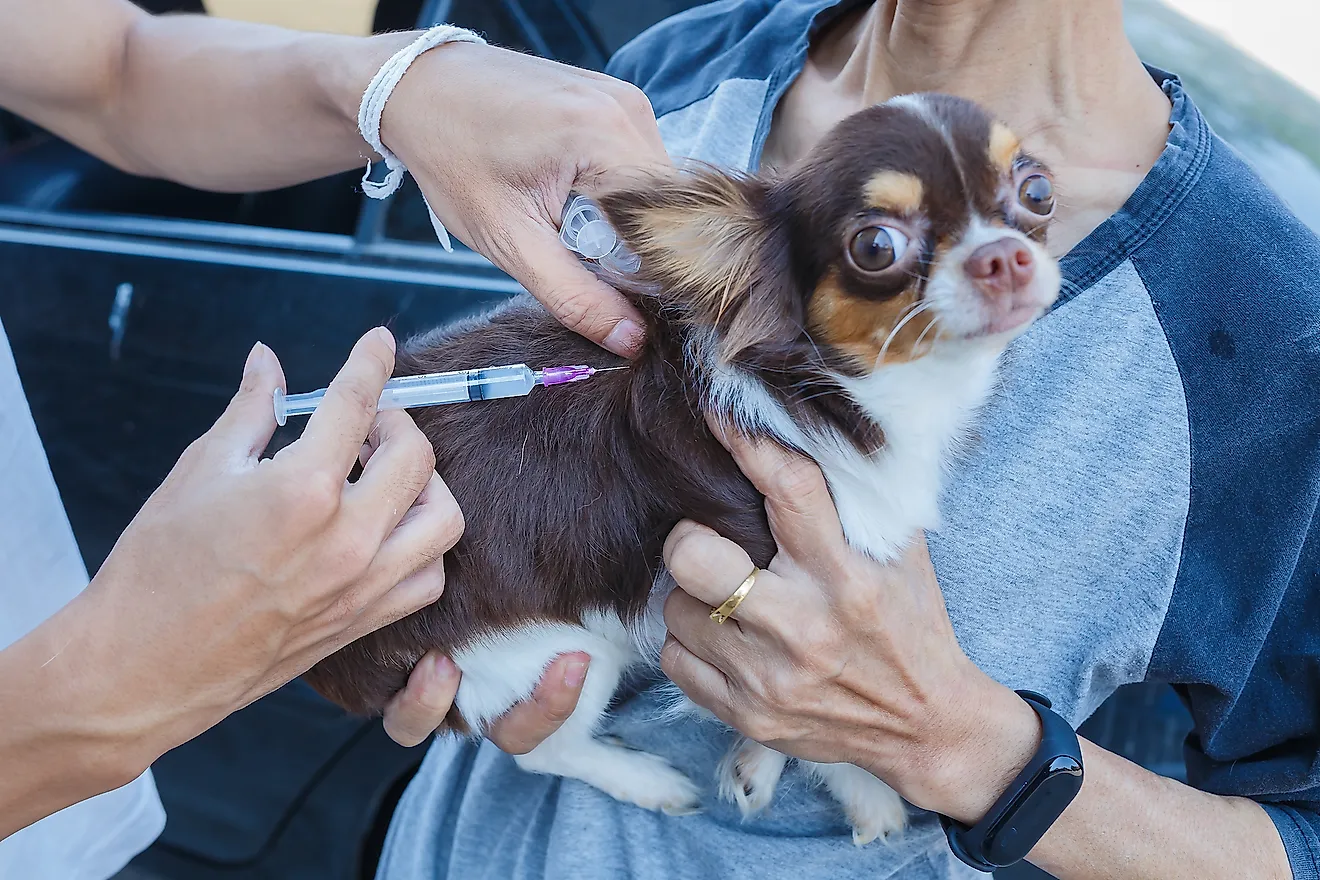Which Animals Can Carry Rabies?

- Widespread vaccination of domestic animals against rabies means pets only account for 10% of all rabies cases.
- Only one or two people die from rabies in the United States every year.
- 70% of human rabies cases in the United States are linked to bats.
Rabies is a deadly virus that affects the central nervous system, traveling through the nerves to the brain and ultimately causing death. It can affect any mammal, which includes wild animals, domestic animals, and even humans. However, the vast majority of cases today are found in wild animals thanks to increased awareness, prevention, and treatment of the disease. This is a change from the 1960s, when the majority of cases were found in pets like dogs and cats.
Since rabies is spread through the saliva and cannot pass through unbroken skin, it is typically only contracted via a bite from an infected animal. It can’t be contracted through the air or from contact with the animal’s blood or excrements. Even in case of transmission through a bite, rabies is treatable if it is caught early enough and stopped before it spreads to the brain.
5 Wild Animals That Can Carry Rabies
Bats
Bats cause the majority of rabies cases in humans in the United States; seven in ten cases are linked to contact with these animals. Rabid bats have been found in every state except Hawaii, making them the most widespread source of rabies in the country. Rabies cases from bats are also most likely to go undetected, since these animals are so small and can potentially bite humans and animals without being identified. For example, there have been documented cases of bats entering the home and biting humans in their sleep.
Raccoons
Raccoons are most likely to be infected with rabies in the eastern United States. They are considered one of the primary carriers of the virus, although there is only one report of a human dying from rabies contracted from a raccoon. Although raccoons are often thought to be nocturnal, seeing an active raccoon during the day doesn’t mean the animal is rabid. Instead, it’s important to look out for erratic behavior or a sickly appearance.
Skunks
Skunks are primary rabies carriers in the central United States. Like raccoons, it’s not unusual for healthy skunks to be outdoors during the day. Some of the rabies symptoms to look out for in these animals include difficulty waking, circling, or paralyzed limbs.
Coyotes
Since coyotes are closely related to dogs, they have a higher chance of contracting rabies from domestic animals. But rabies cases in coyotes are still somewhat rare. They’ve mostly been recorded in Texas, although the prevalence seems to have significantly decreased in recent years.
Foxes
Encountering a rabid fox is extremely rare, although it’s more likely to happen in certain geographic areas of the United States. These include eastern states, Texas, Arizona, and Alaska. There are few to no recorded cases of humans contracting rabies from foxes, although the danger of transmission is considerable for domestic pets.
Rabies In Domestic Animals
Nine in ten rabies cases in the United States occur in wild animals. However, it’s still possible for any mammal to contract rabies, including dogs, cats, horses, and domestic rodents. It’s important to have your pets vaccinated against rabies and seek treatment from a veterinarian immediately after suspected exposure to a wild animal. This is especially true for animals that are kept or spend significant amounts of time outdoors without supervision.











